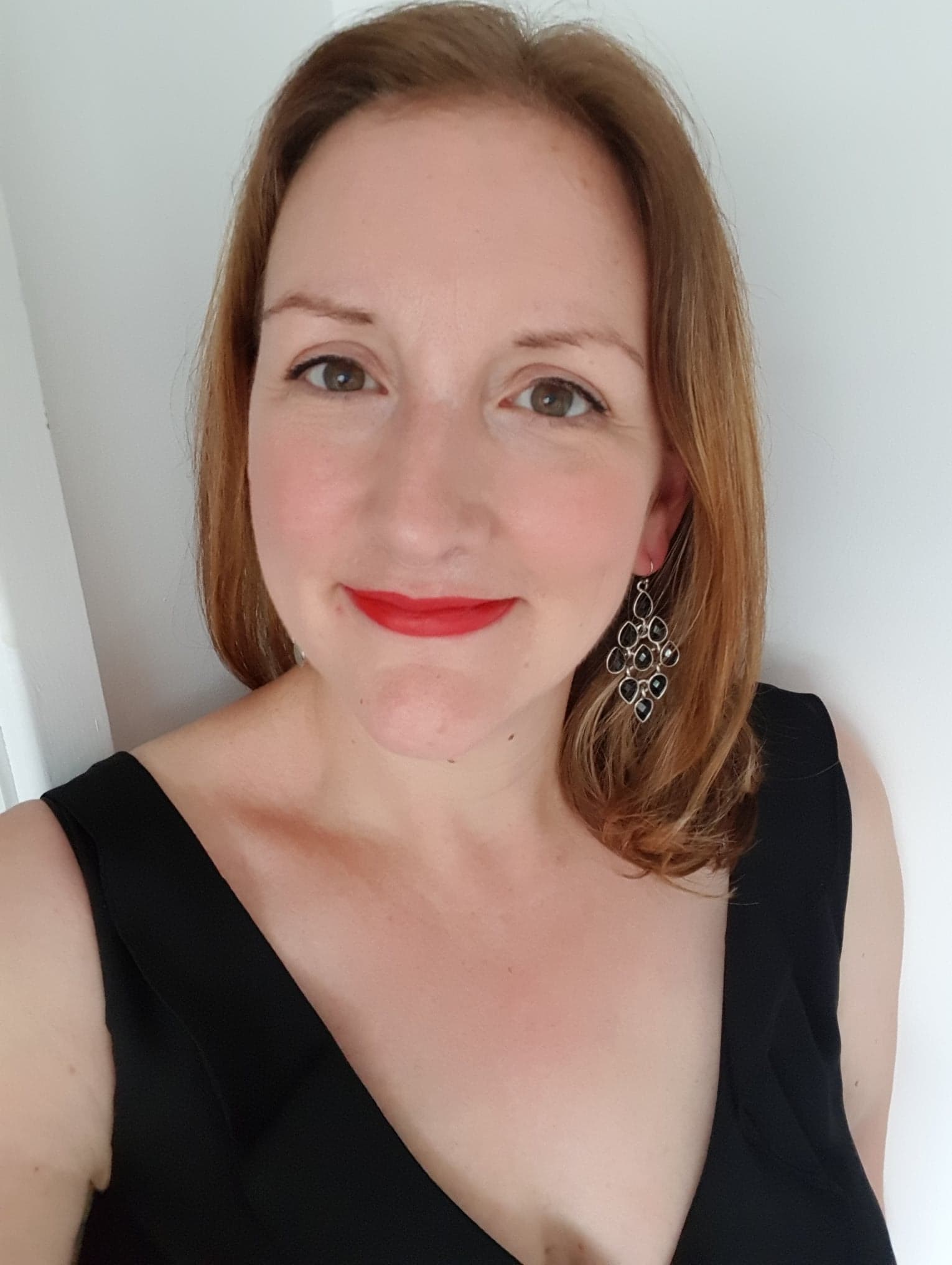Dr Sue Wilbraham, PhD
- Associate Professor in Environment, Health and Wellbeing
- Institute of Health
- Health and Wellbeing

- Email: susan.wilbraham@cumbria.ac.uk
- Tel: +44 (0)1228 616173
- Location: Carlisle - Fusehill Street
Biography
- Programme Leader MSc Psychology pathways & MSc Environment health and wellbeing
- BSc, MSc and PhD Supervisor
- Module leader for: Organisations and the Environment (Level 7), Outdoor spaces, health and wellbeing (Level 7), Research methods (Level 7), Negotiated learning (Level 5), Perspectives in psychology (Level 4)
- UCU Environment Rep for University of Cumbria
- Athena Swan rep for Institute of Health.
Qualifications and memberships
- Chartered Psychologist - British Psychological Society (BPS)
- Senior Fellow of the Higher Education Academy (2017)
- PhD in Psychology - from University of Central Lancashire (2010)
- Postgraduate Certificate in Learning & Teaching in Higher Education - from University of Cumbria (2009)
- Certificate in Higher Education Teaching Toolkit - from University of Central Lancashire (2008)
- BSc (Hons) Psychology: First Class - from University of Central Lancashire (2005)
Academic and research interests
I am a Chartered Psychologist and a member of the Division of Health Psychologists with the British Psychological Society. My research interests relate to public health, environmental psychology, and to health and wellbeing in Higher Education. I have published research relating to wellbeing in universities (assessment practice, staff wellbeing, social relationships, independent learning, physical environment), sport (Muay Thai, Open Water Swimming), EDI (disability inclusion, gender representation), and community interventions for loneliness.
As UCU environment rep for University of Cumbria I seek to drive change within our organisation while embedding sustainability in all my teaching and research. I am passionate about equality, diversity and inclusion; I am co-chair of our Disabled and Neurodiverse staff network (DANN) and am part of our LGBTQ staff network.
Research supervision
Current Research Students:
- Alende Amisi - Understanding racialised experiences of students in Higher Education
- Neave Dalby - University student loneliness experiences
- Amanda Wilson - Head teacher wellbeing
- Leah Suma - Gender equality in just transitions
- Dan Gibbons - Investigating the organisation of identity in competitive gaming and esports
- Nnaemeka Amanze - Doing business within safe and just limits
- Lt Col Sue Pope - Leadership Cultures and Wellbeing in the DMS workforce.
Completed Research Students:
- Charlotte Hardacre - Authentic practice in family learning
Publications
Publications:
Christie, M., Elliott, D., & Wilbraham, S. (2025). Freedom, fun, friendship and freezing! Women’s perspectives of participation in open water swimming. Sport in Society, 1–25. https://doi.org/10.1080/17430437.2025.2470158
Wilbraham, S. (2025). A Local evaluation of Furness for You: A community intervention for loneliness and social isolation in Barrow-in-Furness. UK Community Foundations. https://www.ukcommunityfoundations.org/media/wcrlp4je/25-09-2025-furness-for-you-place-based-report-kyn-fund-ukcf.pdf
Wilbraham, S., Evans, C., & Carter, J. (2025). Time to address disability inclusion for university staff. Wonkhe. Retrieved from https://wonkhe.com/blogs/time-to-address-disability-inclusion-for-university-staff/
Wilbraham, S. J., Elliott, D., & Miller, P. K. (2024). It’s just how we do it: social processes in rapid weight loss for combat sports. Health Psychology and Behavioral Medicine, 12(1). https://doi.org/10.1080/21642850.2024.2433517
Wilbraham, S., Jones, E., Priestley, M. & Hughes, G. (2024). Student and staff wellbeing is shaped by university surroundings. Wonkhe. Retrieved from https://wonkhe.com/blogs/student-and-staff-wellbeing-is-shaped-by-university-surroundings/
Amisi, A., Bates, E. A., & Wilbraham, S. J. (2024). How Does the Curriculum Contribute to the Experiences of Belongingness in Higher Education?. Psychology Teaching Review, 30(1), 96-106. https://doi.org/10.53841/bpsptr.2024.30.1.96
Wilbraham, S.J., Jones, E., Brewster, L., Priestley, M., Broglia, E., Hughes, G., & Spanner, L. (2024). Inclusion or Isolation? Differential Student Experiences of Independent Learning and Wellbeing in Higher Education. Education Sciences, 14(3):285. https://doi.org/10.3390/educsci14030285
Roscoe, J., & Wilbraham, S. (2024). ‘When it goes well, it works fantastically’: motivations to train and their impact on the practice of CBT. The Cognitive Behaviour Therapist, 17(6). doi:10.1017/S1754470X24000060
Roscoe, J., Taylor, J., Harrington, R., & Wilbraham, S. (2022). CBT supervision behind closed doors: Supervisor and supervisee reflections on their expectations and use of clinical supervision. Counselling and Psychotherapy Research. 22 (4), 1056 - 1067 DOI: 10.1002/capr.12572
Priestly, M., Hall., A., Wilbraham, S. J., Mistry, V., Hughes, G. & Spanner, L. (2022). Student Perceptions and Proposals for Promoting Wellbeing Through Social Relationships at University. Journal of Further and Higher Education. 46 (9), 1243-1256, DOI: 10.1080/0309877X.2022.2061844
Brewster, L., Jones, E., Priestley, M., Wilbraham, S. J., Spanner, L. & Hughes, G. (2021). ‘Look after the staff and they would look after the students’ cultures of wellbeing and mental health in the university setting. Journal of Further and Higher Education. 46 (4), 548-56 DOI: 10.1080/0309877X.2021.1986473
Jones, E., Priestley, M., Brewster, L., Wilbraham, S. J., Hughes, G., & Spanner, L. (2020). Student wellbeing and assessment in higher education: the balancing act. Assessment & Evaluation in Higher Education, 1-13. https://doi.org/10.1080/02602938.2020.1782344
Wilbraham, S. & Caldwell, E. (2018). Children’s books are adding to science’s gender problem. The Conversation. Retrieved from https://theconversation.com/childrens-books-are-adding-to-sciences-gender-problem-98522
Wilbraham, S. J., Qualter, P., & Roy, M. P. (2018). Emotional intelligence and cortisol responses: Can laboratory findings be replicated in classrooms and using other EI measures?. Personality and Individual Differences, 120, 58-64. https://doi.org/10.1016/j.paid.2017.08.021
Caldwell, E. F., & Wilbraham, S. J. (2018). Hairdressing in space: Depiction of gender in science books for children. Journal of Science & Popular Culture, 1(2), 101-118. https://doi.org/10.1386/jspc.1.2.101_1
Conferences (last five years, by date):
- Wilbraham, S. J. & Hardacre, C. (2024). The Disorienting Dilemmas of Wellbeing in Higher Education: An Educator's Perspective. Presentation at International Transformative Learning Conference, University of Siena
-
Wilbraham, S. J. (2023). How student wellbeing is impacted by independent learning. Presentation at Learning and Teaching Fest Conference, University of Cumbria.
-
Corless, L., Wilbraham, S. J., Buckley, A., & Sharples, G. (2023). The Power of Stories: Using Schwartz Rounds in Higher Education to create caring cultures. Presentation at Learning and Teaching Fest Conference, University of Cumbria.
- Wilbraham, S. J. & Scott, J. (2019). Understanding and reducing student stress within assessment practice. Presentation at Advance HE annual conference, Northumbria University.
Recent external roles
2024 - CCF Commissioned Researcher: DCMS KYN Stage 2 In-depth place-based evaluation
